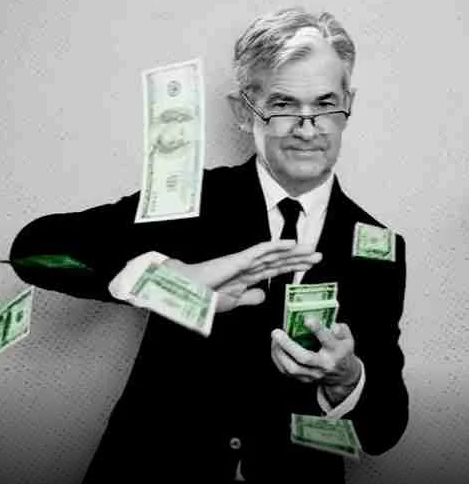
Why the Fed Doesn't Care
Deflation & Recession
Deflation
An earlier article I wrote in Dec 2022, was written because of my fear of deflation entering the US Markets & Germany to a lesser extent. This fear was born out of significant issues in the market for US Assets.
In the 1970's the US experienced significant Inflation with wages rising very fast, although prices rose faster. The Baby Boomers were coming of age and doing the same things - having kids, buying houses, buying cars. The misadventures of the US State Departments threatened energy prices and other supply chains. All of this combined rose the cost of money, and it went away naturally, with the help of Mr. Volcker.

In the 2020's, the Millennials are coming of age and are looking to buy homes, cars and have kids burdened by student loan debt and wages that haven't budged since the mid 80's. Prices, however, have rocketed to never before seen levels.
The Baby Boomers & their conditions brought forth a shocking increase in demand for the things that growing families need. The Millenials & their conditions have brought for a demand shock as well, but this time it is a decrease.
Recession
I think the likelihood of Recession is very low, but I think the likelihood of a recession of demand is very likely. A demand recession would hurt the stock market more than anything because the US GDP is heavily associated with commercial spending and aggregate demand.
A lot of people don't realize that commerce changes as you age and the idea of the highest spenders (18 - 45) being burdened with ungodly debt, hellish inflation and sluggish wage gains just leads me to think of a pull back in spending.
The Federal Reserve
The Federal Reserve has hiked rates to levels unseen for a few decades with lightening speed and suddenly they've pivoted. Many people are perplexed, confused and kerfuffled. How could this be? Inflation will just go right back up?
I don't think anyone is looking at demographics appropriately to understand the Federal Reserve's Logic. One-third of this nation is exceeding the age of 50 years, which is up significantly from 9.8% in 1970. These people, holding their wealth of money and gray hairs, are not spending the money they spent in the 70's.

Knowing this, the Federal Reserve can lower rates to a range of 3.50% - 4.25% by the end of 2024 and continue to the inflation. Why? Natural deflationary forces will continue to combat inflation for them. The Federal Reserve saw wage growth slow in the youth which is their largest metric for future inflation. Young working adults with extra cash? Not good for prices.

Jerome Powell has been very passionate about the motto, 'higher for longer' but that never meant 5.0%. It meant sufficiently restrictive. Somewhere in the Second Quarter of 2023 The Federal Funds Rate became restrictive, but in August, it seems to have become sufficiently restrictive.

Even as the Federal Reserve sees CPI at 3.4% for 2023 December, dawdling between 3% - 4%, they know they can lower rates in the meantime as more natural deflationary forces take hold. If they keep rates at 5.25% - 5.50% until CPI is 2% or lowers, then there is a significant chance that the deflation is worse and a recession is guaranteed.
If we do not want to see negative rates in the US for the first time, I think they are moving on time.
Caveat Emptor
Is there a chance that the Federal Reserve raises rates? Sure. But we have something in our back pockets. Growing international conflict from the Middle East to the Ural Mountains. Nation States like war. Wars cannot be funded at high rates of interests so expect these conflicts to behave as a hedge against their interest rises.
The larger they get, the less likely rates increase. This goes for both the ECB and the Federal Reserve.

